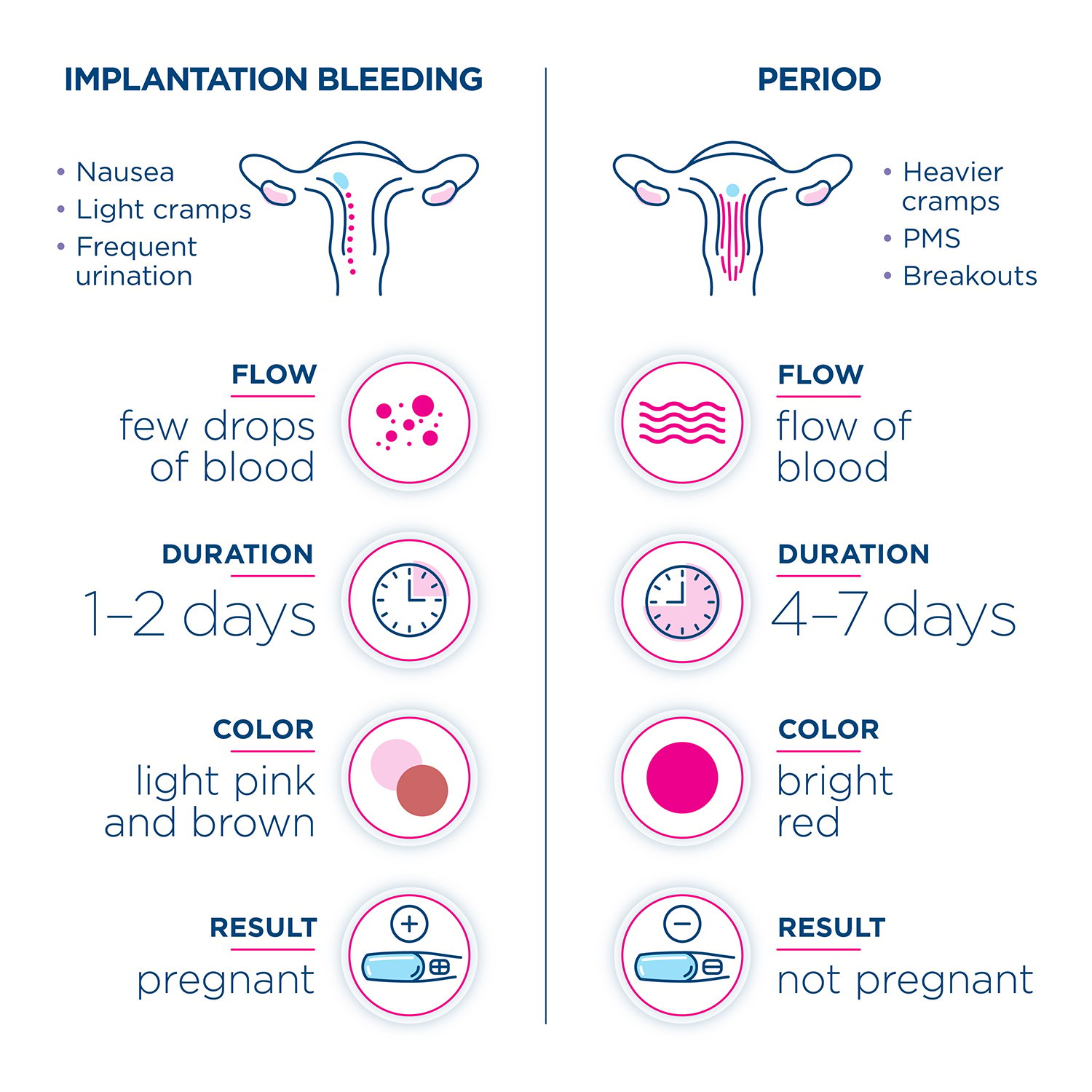
Spotting: A Sign of Period or Pregnancy?
Spotting, or light vaginal bleeding that occurs outside of a woman’s regular menstrual period, can be a common occurrence for many women. While it can be a sign of an underlying medical condition, in most cases, spotting is not a cause for concern. However, it can be difficult to determine whether spotting is a sign of an impending period or an early pregnancy.
Spotting During Pregnancy
Spotting during pregnancy is relatively common, affecting up to 25% of pregnant women. It typically occurs during the first trimester, usually within the first 12 weeks of pregnancy. This spotting is often light and may last for a few days or up to a week.
There are several reasons why spotting may occur during pregnancy:
- Implantation bleeding: This occurs when the fertilized egg implants in the lining of the uterus. It typically happens around 10-14 days after conception and can cause light bleeding or spotting.
- Hormonal changes: Fluctuating hormone levels during pregnancy can cause changes in the cervical mucus, which can lead to spotting.
- Cervical irritation: The cervix becomes softer and more sensitive during pregnancy, which can make it more prone to irritation and bleeding during intercourse or pelvic exams.
- Placental abruption: This is a serious condition that occurs when the placenta separates from the uterine wall. It can cause heavy bleeding and abdominal pain.
- Ectopic pregnancy: This is a life-threatening condition that occurs when the fertilized egg implants outside the uterus. It can cause severe pain and bleeding.
Spotting Before Period
Spotting before a period is also common, affecting up to 50% of women. It typically occurs a few days before the onset of menstruation and is usually light and lasts for a short period.
The most common cause of spotting before a period is hormonal fluctuations. As the body prepares for menstruation, the levels of the hormone progesterone decrease, which can cause the lining of the uterus to shed slightly, resulting in spotting.
Other causes of spotting before a period include:
- Ovulation: Some women experience spotting around the time of ovulation, which occurs about 14 days before the start of a period.
- Contraceptive use: Certain types of birth control, such as hormonal implants or intrauterine devices (IUDs), can cause irregular bleeding or spotting.
- Uterine fibroids: These non-cancerous growths in the uterus can cause heavy bleeding or spotting between periods.
- Endometriosis: This condition occurs when endometrial tissue, which normally lines the uterus, grows outside the uterus. It can cause pain, heavy bleeding, and spotting.
Distinguishing Between Spotting from Period or Pregnancy
Determining whether spotting is a sign of an impending period or an early pregnancy can be challenging. However, there are some key differences that can help you distinguish between the two:
- Timing: Spotting during pregnancy typically occurs within the first 12 weeks, while spotting before a period usually happens a few days before the onset of menstruation.
- Duration: Spotting during pregnancy may last for a few days or up to a week, while spotting before a period is usually shorter, lasting only a few hours or days.
- Color: Spotting during pregnancy is often light pink or brown, while spotting before a period is usually darker red.
- Cramps: Spotting during pregnancy is not typically accompanied by cramps, while spotting before a period may be accompanied by mild cramping.
- Other symptoms: Spotting during pregnancy may be accompanied by other early pregnancy symptoms, such as nausea, breast tenderness, and fatigue.
When to Seek Medical Attention
While most cases of spotting are not a cause for concern, it is important to seek medical attention if you experience any of the following:
- Heavy bleeding or clots
- Severe abdominal pain
- Spotting that lasts for more than a week
- Spotting that is accompanied by other symptoms, such as fever, chills, or nausea
- Spotting that occurs after menopause
Conclusion
Spotting can be a sign of either an impending period or an early pregnancy. While it can be difficult to distinguish between the two, paying attention to the timing, duration, color, and accompanying symptoms can help you determine the cause. If you are unsure or concerned about any spotting, it is always best to consult with your healthcare provider for an accurate diagnosis and appropriate treatment.